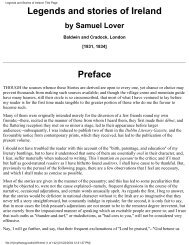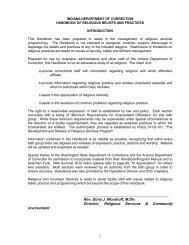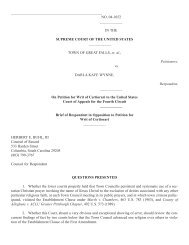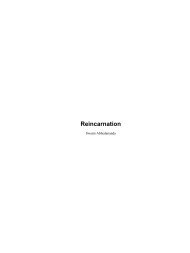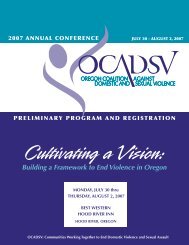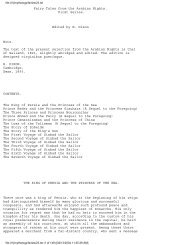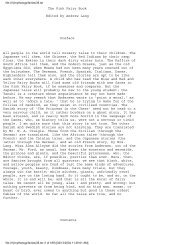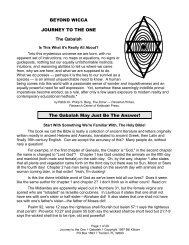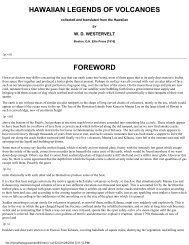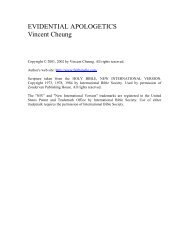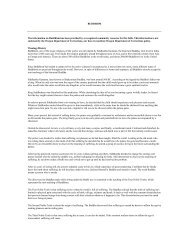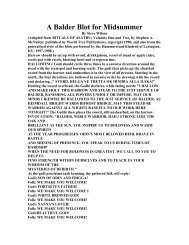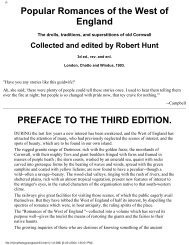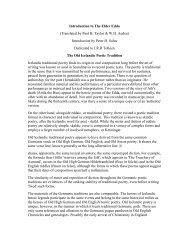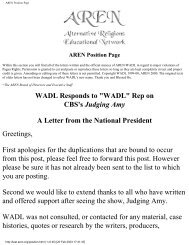Irish Druids And Old Irish Religions PREFACE CONTENTS
Irish Druids And Old Irish Religions PREFACE CONTENTS
Irish Druids And Old Irish Religions PREFACE CONTENTS
You also want an ePaper? Increase the reach of your titles
YUMPU automatically turns print PDFs into web optimized ePapers that Google loves.
Chrysostom:--"For, without the <strong>Druids</strong>, the Kings may neither do nor consult anything; so that in reality they are the <strong>Druids</strong> who reign,<br />
while the Kings, though they sit on golden<br />
p. 33<br />
thrones, dwell in spacious palaces, and feed on costly dishes, are only their ministers." Fancy this relating to either rude <strong>Irish</strong> or Welsh.<br />
Toland makes out that Lucan spoke to one; but Lucan said it not. The Edinburgh Review of 1863 may well come to the conclusion that<br />
"the place they really fill in history is indefinite and obscure."<br />
Madame Blavatsky has her way of looking at them. They were "the descendants of the last Atlanteans, and what is known of them is<br />
sufficient to allow the inference that they were Eastern priests akin to the Chaldæans and Indians." She takes, therefore, an opposite view<br />
to that held by Morien. She beheld their god in the Great Serpent, and their faith in a succession of worlds. Their likeness to the Persian<br />
creed is noticed thus:--"The <strong>Druids</strong> understood the morning of the Sun in Taurus; therefore, while all the fires were extinguished on the<br />
first of November, their sacred and inextinguishable fires alone remained to illumine the horizon, like those of the Magi and the modern<br />
Zoroastrians."<br />
Poppo, a Dutchman of the eighth century, wrote De officiis Druidum; and Occo, styled the last of the Frisian <strong>Druids</strong>, was the author of a<br />
similar work. Worth, in 1620, and Frickius of 1744 were engaged on the same subject. It is curious to notice St. Columba addressing God<br />
as "My Druid," and elsewhere saying, "My Druid is Christ the Son of God." The Vates were an order known in <strong>Irish</strong> as Faidh. Some<br />
derive Druid from Druthin, the old German for God. The word Druith is applied to a Druidess.<br />
While many treat the <strong>Druids</strong> as religious, O'Curry asserts, "There is no ground whatever for believing the <strong>Druids</strong> to have been the priests<br />
of any special positive worship." Then Vallencey declares that "Druidism was not the established religion of the Pagan <strong>Irish</strong>, but<br />
Buddhism." Yet Lake Killarney was formerly Lock Lene, the Lake of Learning.<br />
p. 34<br />
The mystical, but accomplished, Massey tell us, "An <strong>Irish</strong> name for Druidism is Maithis, and that includes the Egyptian dual Thoth called<br />
Mati, which, applied to time, is the Terin or two Times at the base of all reckoning"--"likely that the Druidic name is a modified form of<br />
Tru-Hut."--"In Egypt Terut signifies the two times and before,. so the Druidic science included the knowledge of the times beforehand, the<br />
coming times."<br />
Toland, one of the earliest and most philosophical <strong>Irish</strong> writers on this subject, thus spoke of them in his History of the <strong>Druids</strong>--"who were<br />
so prevalent in Ireland, that to this hour their ordinary word for magician is Druid (Drai), the art magic is called Druidity (Druidheacht),<br />
and the wand, which was one of the badges of the profession, the rod of Druidism (Slatnan Druidheacht)."<br />
Windele, in Kilkenny records, expressed this view:--"Druidism was an artfully contrived system of elaborate fraud and imposture. To<br />
them was entrusted the charge of religion, jurisprudence, and medicine. They certainly well studied the book of Nature, were acquainted<br />
with the marvels of natural magic, the proportions of plants and herbs, and what of astronomy was then known; they may even have been<br />
skilled in mesmerism and biology." He thought that to the Druid "exclusively were known all the occult virtues of the whole materia<br />
medica, and to him belonged the carefully elaborated machinery of oracles, omens, auguries, aëromancy, fascinations, exorcisms, dream<br />
interpretations and visions, astrology, palmistry, &c"<br />
As this may demand too much from our faith, we may remember, as Canon Bourke says, that "the youth of these countries have been<br />
taught to regard the Pagan <strong>Druids</strong> as educated savages, whereas they had the same opportunity of acquiring knowledge, and had really<br />
possessed as much as the Pagans of the Peloponnesus." We should further<br />
p. 35<br />
bear in mind the assurance of the <strong>Irish</strong> historian, O'Curry, that "there are vast numbers of allusions to the <strong>Druids</strong>, and of specific instances<br />
of the exercise of their vocation-be it magical, religious, philosophical, or educational--to be found in our old MSS."<br />
Has not much misapprehension been caused, by authors concluding that all varieties of religion in Ireland proceeded from a class of men<br />
who, while popularly called <strong>Druids</strong>, may not have been connected with them? We know very far more about these varieties of faith in<br />
Ireland, before Christianity, than we do about any description of religion in Wales; and yet the Druidism of one country is reported as so<br />
different from that in the other immediately contiguous. Such are the difficulties meeting the student of History.<br />
The <strong>Irish</strong> Druidical religion, like that of Britain and Gaul, has given rise to much discussion, whether it began, as some say, when<br />
Suetonius drove <strong>Druids</strong> from Wales, or began in Ireland before known in either Britain or Gaul, direct from the East.<br />
"The Druidical religion," says Kenealy in the Book of God, "prevailed not only in Britain, but likewise all over the East." Pictet writes,<br />
"There existed very anciently in Ireland a particular worship which, by the nature of its doctrines, by the character of its symbols, by the<br />
names even of its gods, lies near to that religion of the Cabirs of Samothrace, emanated probably from Phœnicia." Mrs. Sophie Bryant<br />
thinks that "to understand the <strong>Irish</strong> non Christian tradition and worship, we should understand the Corresponding tradition and worship,<br />
and their history, for all the peoples that issued from the same Aryan home." Ledwich is content with saying, that "the <strong>Druids</strong> possessed no<br />
internal or external doctrine, either veiled by Symbols, or clouded in enigmas, or any religious tenets<br />
file:///I|/mythology/witchcraft/8/8.html (14 of 114) [02/05/2004 8:38:13 AM]



